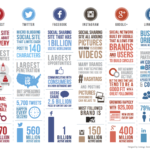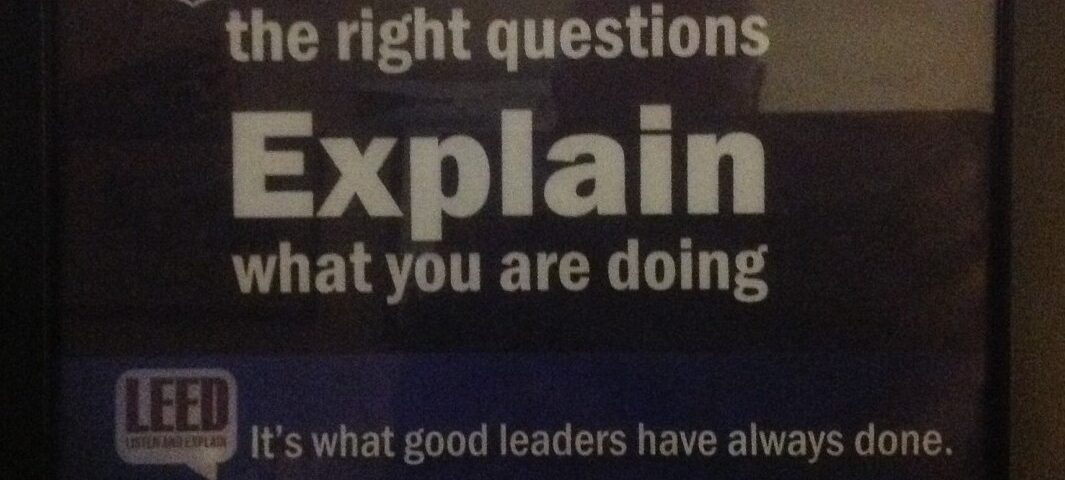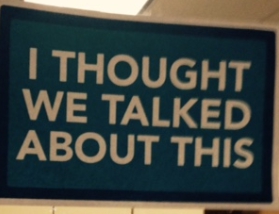
Thoughts about Communication
March 18, 2015What Drives Vision [a survey]
March 20, 2015THE
LOYALTY SOLUTIONS
GROUP
Cultures Built On Continuous Feedback
THE EIGHT INTERPERSONAL BEHAVIORAL SKILLS THAT BUILD TRUST
Did you know that you actually trust Everyone you work with-?! You trust them to be late – to be funny – to be slow – to be inaccurate – to be the person that you have come to expect them to be. You see, trust is about associates acting in accordance with your expectations of their usual behavior. It actually can get worse: research suggests that within 20 seconds of meeting someone, you form your opinion of that person, and then only see those behaviors that reinforce your initial opinion.
In Steve Covey’s book The Speed of Trust he suggests that high levels of trust create the ability to move faster in making agreements and getting things done. He is right – not only on getting things done, but also on getting nothing done. So, positive trust is very important. The following 8 behaviors are my core practices that accelerate the building of positive levels of trust. But in collaborative cultures, Trust only acts as the doorway to respect. High levels of positive trust get you to respect and respect gets you to collaboration and innovation. If you want to be innovative as a culture, you need both TRUST and RESPECT.
IT ALL STARTS WITH A CONVERSATION
CONVERSATION – a form of interactive spontaneous communication between 2 or more people who are following the rules of etiquette. It’s a polite give and take of subject thought by talking with each other for company.
- How well do you engage individuals and small groups in Conversation that allows for equal exchange of information?
- How comfortable are you engaging considering the time pressures of your workday?
[Score your behavior 1-10, with 10 being very good]
ASKING THE RIGHT QUESTIONS
QUESTIONS: Linguistic expression to make a request for information. The skill of asking right questions.
- Categorically –Looking for straight-forward answers-basic information
- Analytical-Qualified answers [defining or re-defining information]
- Do you ask questions and show an inquisitive nature with clients?
- How well do you use a question that engages individuals and or groups at the level of relationship that best enhances the depth of those relationships?
[Score your behavior 1-10 with 10 being very good]
DEMONSTRATING THE LISTENING TOUCH
ACTIVE LISTENING requires the listener to feedback what they have heard to the speaker by way of re-stating or paraphrasing what you have heard in your own words.
- How often do you “Active Listen” vs. “Waiting to Speak”?
- Do you set aside time to “listen” during conversations?
[Score your behavior 1-10 with 10 being very good]
DEMONSTRATING EMPATHY AND RESPECT
EMPATHY is the Capacity to recognize emotions that are being experienced by another person. The ability to imagine one’s self as the other person.
RESPECT is a positive feeling of esteem or deference for a person or group. Respect is something that is earned by the standards of the Society in which one lives. Respect cannot be bought or traded – it is built and earned over time.
How consistently do you show Respect and Empathy to individuals and groups that you work with?
[Score your behavior 1-10 with 10 being very good]
BEING VERY GOOD AT EXPLAINING AND EDUCATING
EXPLANATION is a set of statements constructed to describe a set of facts, which clarify the causes, content, and consequences of those facts. Explanation is subject to interpretation and discussion.
EDUCATION in its general sense, is a form of learning in which knowledge, skills, and habits of a group of people are transferred to another individual or group.
- How good you are at Explaining and Educating?
[Score your behavior 1-10 with 10 being very good]
MANAGING EXPECTATIONS / CREATING CLEAR AGREEMENTS
EXPECTATIONS – In the case of uncertainty, expectation is what is considered the most likely to happen. Expectation is a belief that is centered on the future. If something happens that is not expected, it is a surprise. An expectation is about the behavior or performance of another person.
GENTLEMAN’S AGREEMENT is an informal agreement between two or more parties. It is typically oral, and though it may be written. The essence of a Gentleman’s agreement is that it relies upon the honor of the parties for its fulfillment.
- How consistently do you define/clarify/ and or establish clear expectations and mutual understanding with your business relationships?
[Score your behavior 1-10 with 10 being very good]
DEALING WITH CONFLICT
CONFLICT is the mental struggle resulting from incompatible or opposing need, drive, wishes — external or internal demands. It is this opposition between people which gives rise to drama or friction.
- How well do you deal with Conflict, do you have a specific strategy to handle conflict?
[Score your behavior 1-10 with 10 being very good]
ASKING FOR AND TAKING FEEDBACK
FEEDBACK – the return to the point of evaluation or corrective behavior about an action or process. Helping to get valuable information about these behavioral skills’ impact on your business partners’ level of trust in the relationship.
- Do you regularly ask for and or receive feed-back from you business partners and clients?
- Does asking for feed-back seem like a practical or contrary idea?
[Score your behavior 1-10 with 10 being very good]
CONCLUSION
ADD UP YOUR SCORES [90%=72, 80%=64, 70%=56, and 60%=48]
None of these interpersonal skills are hard to do, they just require being conscious of doing them and becoming aware that if you do:
“TRUST” IN YOUR BUSINESS RELATIONSHIPS WILL SET YOU APART FROM ALL YOUR COMPETITION, INCREASE YOUR BOTTOM LINE, AND GAIN YOU THE HARDEST THING TO ACHIEVE IN LIFE: RESPECT.





